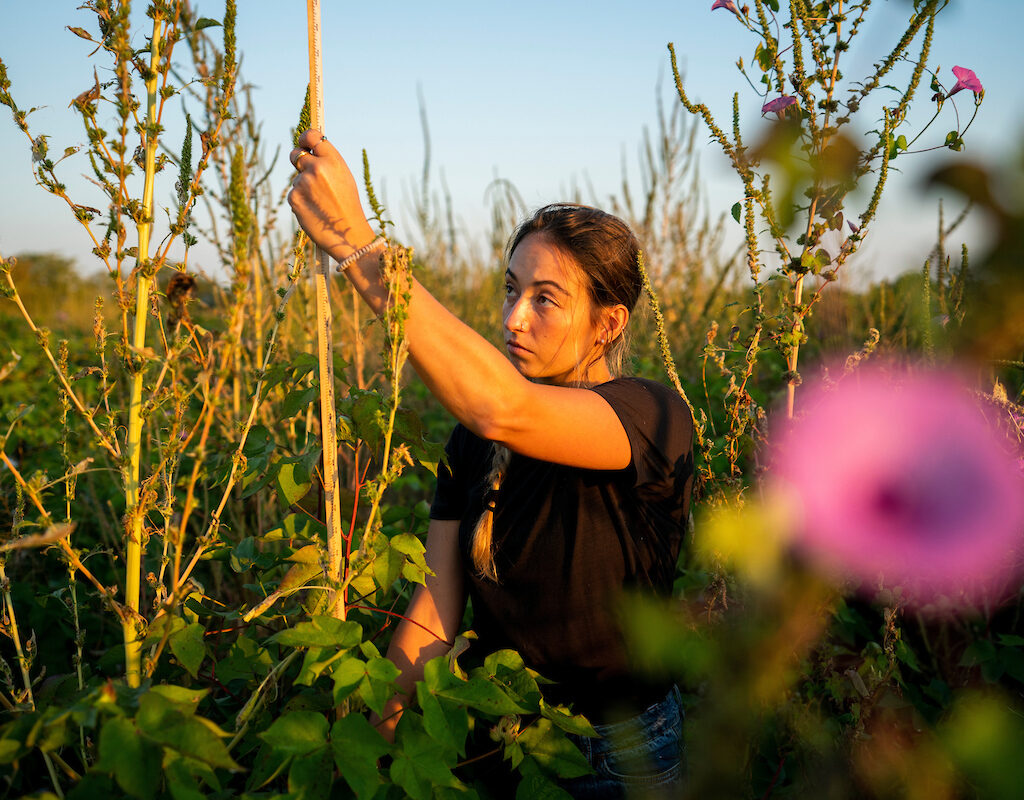
Overview
Contact
Travis Mays
Analytical Chemistry Section Head
483 Agronomy Road
College Station, TX 77843
M-F 8:00 a.m. – 5:00 p.m.
Texas is home to countless varieties of plants. Several varieties are toxic to certain animal species while other varieties may be toxic only under certain environmental conditions. The Texas A&M Veterinary Medical Diagnostic Laboratory, TVMDL, offers four options to identify a plant and determine its toxicity. Depending on the testing option, clients may submit an animal’s stomach contents or samples of the plant in question.
Clients may also consider using TVMDL’s digital toxicology option. This option allows clients to submit images of plants via email or through TVMDL’s mobile app, rather than ship samples of the actual plant. TVMDL encourages clients interested in plant identification to schedule a consultation with one of TVMDL’s veterinary diagnosticians.
About TVMDL
TVMDL tests thousands of specimens from clients across Texas, in neighboring states and around the world every business day, protecting the health of livestock, poultry, companion animals, exotic animals, racing animals and wildlife. Veterinarians, animal owners, animal industries and government agencies depend on TVMDL’s expertise for early detection and control of diseases. TVMDL also belongs to a nationwide network of laboratories that provide surge-testing, response and recovery capacity in the event of an animal disease outbreak. Over its history, TVMDL has played a critical role in recognizing and containing outbreaks of anthrax, avian influenza, chronic wasting disease, equine piroplasmosis and many other economically devastating animal diseases.
General Testing
For inquires about available tests, specimen types, test prices, or turnaround times, please refer to the <a href="https://tvmdl.tamu.edu/tests/">TVMDL test catalog</a>. Clients may search the catalog by a test’s name or test code. The test catalog may also be accessed via the TVMDL Mobile app.
Emergencies
TVMDL does not see or treat animals. If you have clinical requests or need immediate assistance with an animal emergency, please contact a veterinary clinic.
More choices in Weed Control
- Course
This four-course aquatic vegetation series provides landowners and pesticide applicators biological information for submerged, algae, floating, and emergent species of problematic aquatic plants found in Texas.
- Course
This course is designed for landowners and pesticide applicators who are looking for aquatic vegetation management techniques or CEUs. During this course, you will learn why aquatic vegetation is problematic, how to manage it, prevention methods, and effective forms of control and mode of action.
- Course
This online course is designed for landowners and pesticide applicators who are looking for techniques to control pond algae and floating aquatic plants, commonly known as pond weeds or pond grass. This course offers 1 hour of IPM CEU credit.
- Publication
Turfgrasses are vital to landscapes, athletic fields, and golf courses; they enhance our quality of life.
- Publication
Using an integrated strategy that combines cultural, mechanical, and chemical methods can help you manage weeds in cotton effectively, economically, and with little harm to the environment. This publication lists herbicides for pre-plant burndown, pre-plant incorporated, pre-emergence, post-emergence, post-directed or hooded, and wick or wiper applications. It also lists herbicides, formulations, group numbers, and mechanisms […]
- Publication
This publication outlines the primary weed pests of spinach, integrated weed management strategies, and recent research findings as they influence current best practices for controlling weeds in spinach.
